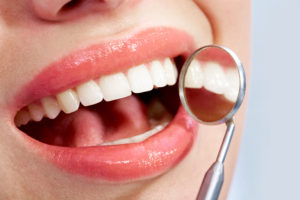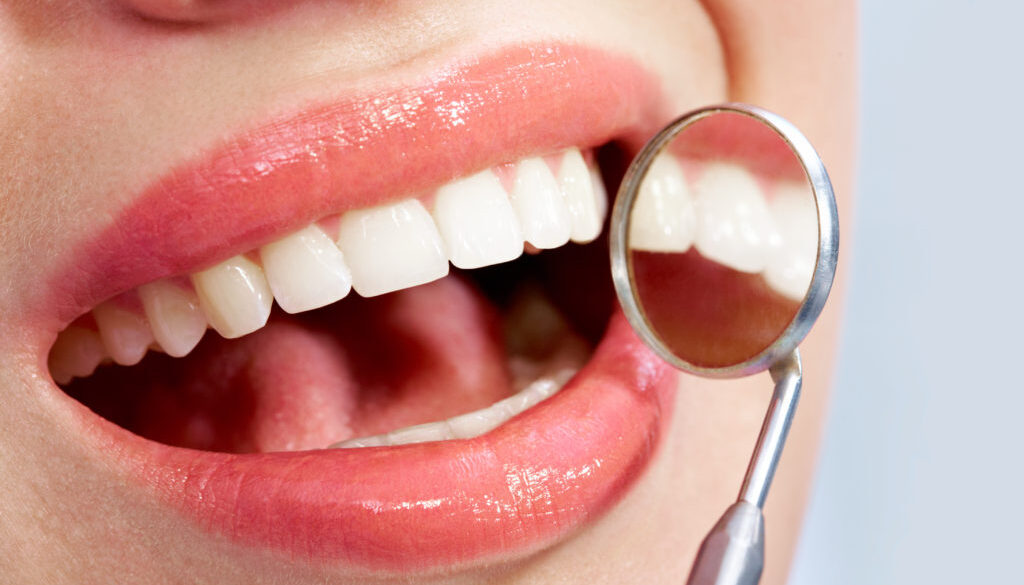Oral Health Affects the Entire Body
By Tammy Balatgek, DDS, MS

New research revealed what happens in your mouth doesn’t stay in your mouth! Did you realize that your mouth is the beginning of your digestive tract? That means we are swallowing mouth bacteria and causing inflammation in our gut and throughout our entire digestive tract which then gets absorbed into the bloodstream. The human mouth contains around 500 to 1000 different types of bacteria. Some of the bacteria in our mouths are harmful and can cause serious illness and many of our oral bacteria are beneficial in preventing disease.
When there is inflammation and disease from infected gums present in the mouth, it can travel through the bloodstream and affect other parts of the body. Countless studies have demonstrated a link between poor oral health and systemic diseases such as heart disease, diabetes, dementia, stroke, rheumatoid arthritis, and pregnancy complications. Other conditions associated with oral health include oral cancer, tooth decay, and tooth loss.
At least 80% of American adults have gum inflammation or disease. Dentists can help by improving oral health which reduces body wide infection and inflammation to allow the body to heal itself. Elimination of oral infection may lead to disease reversal.
Persons with gum disease are nearly twice as likely to suffer from heart disease. Heart or Cardiovascular Disease is the number one cause of death in the United States, claiming more lives than all types of cancer combined. Risk factors for heart disease include: high blood pressure, high cholesterol, diabetes, gum disease, physical inactivity, poor diet, smoking, and alcohol. When a person has gum disease, the periodontal bacteria travel from the mouth into the blood stream and cause body wide inflammation which damages the blood vessel linings, the first step toward heart attack and stroke. Between 80-90% of heart disease can be prevented with lifestyle changes, including periodontal treatment.
There are approximately 29.1 million persons in the US with diabetes and 95% of people with diabetes also have periodontal disease. People with periodontal disease have more difficulty controlling their blood sugar level. Infection causes the release of stress hormones which worsens insulin resistance. Then a bigger rise in glucose levels impair the body’s ability to use the glucose for energy as it stays in your blood and doesn’t reach the cells. The good news is that treatment of periodontal disease can result in a reduction of deaths related to diabetes, a reduction of risk for diabetes related illness, and a reduction in heart attacks.
Alzheimer’s Disease is the most common cause of dementia among older people. The mouth contains pathogenic bacteria called Spirochetes which can escape our body’s immune response and establish inflammation in the body and form plaques and fiber-like lesions in the brain. The number of spirochetes progressively increases as the Alzheimer’s disease becomes more severe. Salivary genetic tests are used to detect the type and numbers of spirochetes and proper gum disease treatment eliminates oral spirochete infection.
Pregnancy complications including preterm birth have been linked to periodontal disease. The mechanism includes a bacteria called F. nucleatum which is present in periodontal infection. These bacteria move from the mouth of the mother through the bloodstream, across the placenta, and into the uterus and causes infection and inflammation which stimulates preterm birth. Periodontal disease is treatable and preventable and should be a part of prenatal care for expectant mothers.
Structurally speaking, other conditions associated with oral health include snoring, sleep apnea, and TMJ (jaw joint) Dysfunction including headaches and migraines.
The mouth is also part of our breathing system and a small mouth or misaligned jaw can cause snoring and/ or sleep apnea due to a small airway leading to collapsed tissues at night and blockages to breathing. In addition, bacteria from the mouth may be inhaled into the sinus and lung systems, leading to an inflamed and compromised nasal airway system. Over 25 million Americans suffer from sleep apnea. Sleep apnea is associated with diabetes, acid reflux, weight gain, car accidents, atrial fibrillation, high blood pressure, anxiety and depression. Dental treatments for sleep apnea include an oral device to prevent collapse of the tongue and airway during sleep.
TMJ (Jaw joint) Dysfunction includes many symptoms such as jaw pain, face pain, headaches, migraines, ear pain or stuffiness, jaw joint noises, ear ringing, dizziness, throat pain, trouble swallowing, and vision changes to name a few. When the jaw joint is out of alignment and the cartilage inside the joint moves around causing inflammation, any number of symptoms may present. Clenching and grinding of teeth may also be associated with these symptoms and should be evaluated by a dentist with additional training in TMJ Disorders.
What can I do to prevent body wide health problems stemming from my mouth? Periodontal disease and tooth decay are diseases that stem from bacteria. Meticulous oral hygiene such as brushing your teeth 3-4X per day, flossing once per day, and using antibacterial rinses and solutions are steps you should take at home. Visiting your dentist on a regular basis and treating gum disease and cavities are a vital part of lowering your risk factors. Snoring, sleep apnea, and TMJ Dysfunction may be due to structural deficits with the mouth and jaw alignment and should be evaluated and treated to improve overall body health. By making oral health a priority, you can be better assured of a healthy mouth and of lowered risks for developing systemic health problems.
Dental Health and Wellness, LLC and the Center for TMJ & Sleep Disorders, LLC are dental offices dedicated to treating mouths as part of overall wellness. We offer comprehensive dental care, dental treatments for TMJ, snoring, sleep apnea, and gum disease treatments to keep the mouth free from inflammation and disease so it doesn’t go to other parts of the body. Donna Spaar, Registered Dental Hygienist, stated “We need to understand that Dentistry is the medical specialty of the mouth!”



